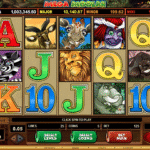Alright, let’s set the scene. India’s online casino industry is booming like Diwali crackers in full swing. Every day, more people are hopping online to try their luck at slots, blackjack, roulette, and Andar Bahar. But here’s the catch—while the games may be global, the players are very much local. And what do locals prefer? Comfort, familiarity, and yep, being spoken to in their own language.
Why Customer Support Is a Game-Changer
When it comes to online casinos, customer support can often be the deciding factor between a one-time player and a loyal customer. Imagine you’re playing your favorite game, you win a significant amount, and you’re eagerly waiting for your payout. Suddenly, there’s a technical glitch, or you’re unsure about the bonus terms. What do you do? You reach out to customer support. If the support is slow, unhelpful, or, even worse, doesn’t understand your language, your experience is immediately soured. A seamless, responsive, and understanding support system can make all the difference between frustration and satisfaction.
But it’s not just about solving problems; it’s about the experience. How casinos handle inquiries can impact a player’s trust. If a player encounters an issue, and the casino offers prompt assistance with a solution, they are far more likely to continue playing. On the other hand, long waiting times, repeated queries, and poor communication can make users feel neglected or disconnected from the platform. That’s where the language barrier plays a significant role. Players who aren’t proficient in English might face a challenge when support is only available in English. This language gap can lead to misunderstandings, delayed resolutions, and overall dissatisfaction. If players feel they can’t communicate easily with support, they’re less likely to return to that platform.
This is especially true in a country like India, with its rich linguistic diversity. Online casinos that offer customer support in regional languages have a distinct advantage. When players can converse in their native tongue, it creates a sense of familiarity and trust. It helps them feel understood and valued, leading to a better overall experience. If a player speaks Hindi, Tamil, or Bengali, and they know they can get support in their language, they are more likely to continue using that platform. Language support, in this case, becomes not just a convenience but a necessity for building lasting relationships with users.
The bottom line is that good customer support isn’t just about answering questions or resolving issues; it’s about building trust, loyalty, and a long-term relationship. For online casinos looking to dominate in competitive markets, offering multi-language support is no longer optional. It’s a must-have feature that directly impacts player satisfaction, retention, and overall brand reputation. By acknowledging and catering to the language needs of players, casinos are investing in more than just solving issues—they’re creating a welcoming environment that fosters positive experiences and, ultimately, long-term success.
The Linguistic Diversity of India: A Quick Reality Check
| Language | Approx. Speakers | Region Covered | Major Dialects | Importance for Online Casinos |
| Hindi | 600+ million | North, Central India | Awadhi, Bhojpuri, Haryanvi, etc. | As one of the most spoken languages, Hindi is essential for reaching a broad audience, especially in the northern states. |
| Bengali | 230+ million | West Bengal, Tripura | Sylheti, Chittagonian | Bengali is key for casinos targeting the eastern part of India, particularly in West Bengal and the Bengali diaspora. |
| Telugu | 90+ million | Andhra Pradesh, Telangana | Rayalaseema, Coastal Andhra, Telangana | Telugu is important for attracting users in southern India, where it’s spoken widely in Andhra Pradesh and Telangana. |
| Marathi | 85+ million | Maharashtra | Varhadi, Konkani, and other regional variations | Marathi-speaking players are crucial for casinos operating in Maharashtra, one of India’s most populous states. |
| Tamil | 75+ million | Tamil Nadu | Kongu, Madurai Tamil | Tamil is significant for targeting users in Tamil Nadu and neighboring regions, where it has a strong cultural and linguistic presence. |
| Urdu | 50+ million | Various northern states | Dakhini, Kashmiri Urdu | Urdu holds cultural and linguistic importance, especially in states like Uttar Pradesh, Bihar, and parts of Jammu & Kashmir. |
| Kannada | 45+ million | Karnataka | Canarese, Kodava, Havyaka | Kannada is vital for casinos targeting players in Karnataka, where it’s the primary language. |
| Gujarati | 55+ million | Gujarat | Surti, Kathiawadi, Kutchhi | Gujarati is essential for casinos targeting the western part of India, especially Gujarat. |
| Malayalam | 35+ million | Kerala | Travancore, Kochi Malayalam | Malayalam-speaking users are crucial for targeting the Kerala region, where it’s the official language. |
| Punjabi | 35+ million | Punjab | Majhi, Doabi, Malwai | Punjabi is significant for reaching players in Punjab and the surrounding regions, including the sizable Punjabi diaspora. |
Is English Enough in the Indian Casino Scene?
While English is widely spoken in many parts of India, especially in urban areas and among tech-savvy users, it’s crucial to understand that the majority of the population is not fluent in the language. Here’s why relying solely on English might not be the best strategy for online casinos targeting the Indian market:
- Limited English Proficiency: Only about 10% of India’s population is fluent in English. This means that the vast majority of potential players may not feel comfortable using a platform that operates solely in English.
- Regional Language Preference: Many players prefer to use platforms that support their regional language, making it more comfortable to navigate, understand, and engage with the content. When a player encounters a language barrier, they’re less likely to continue using the platform.
- Diverse Audience Needs: India’s linguistic diversity means that a one-size-fits-all approach won’t work. What works in English for urban professionals might not resonate with people from rural areas or those who are more familiar with regional languages.
- Missed Opportunities for Engagement: By not offering support in regional languages, casinos may miss out on engaging a massive portion of India’s population. Localized content can create a deeper emotional connection with users, encouraging them to play more often.
- Cultural Disconnect: Language is not just about communication—it’s also about culture. By speaking the regional language, casinos show that they respect and understand the culture, which builds trust and loyalty.
- Higher Conversion Rates: Players are more likely to deposit, play, and stay on a platform that speaks their language. If a casino offers support in Hindi, Bengali, Tamil, or any other regional language, it opens the door to a much wider audience.
- Regional Online Gambling Preferences: Different regions in India may have varying preferences when it comes to online casino games. By offering region-specific language support, casinos can better tailor their offerings to local tastes and habits.
- Better Customer Support: When players face issues or need assistance, they prefer to communicate in their native language. Offering regional language support ensures quicker problem resolution and better user satisfaction.
- Lack of Trust in English-Only Platforms: Some users might feel that English-only platforms are not catered to them, leading to a sense of exclusion. This lack of inclusivity can drive potential players to competitors who offer language options they are comfortable with.
- Engagement in Rural Areas: Rural areas, where the majority of India’s population resides, are less likely to be English-proficient. For casinos to successfully penetrate these markets, they need to offer localized content and support in the regional languages.
How Online Casinos Cater to India’s Language Landscape
Online casinos that truly understand the Indian market are beginning to realize that language isn’t just a feature—it’s a foundation. As competition heats up, platforms are moving beyond the default English-only approach and actively embracing India’s rich linguistic diversity. This shift is not just a marketing gimmick; it’s a strategic move to ensure accessibility, familiarity, and comfort for players from different regions. By doing so, they’re removing a major barrier that’s long kept a large portion of the population away from online gambling platforms.
To cater to this diversity, many online casinos now offer regional landing pages that automatically adjust based on a user’s location or language preference. These pages are carefully translated—not just word-for-word, but culturally localized to resonate with specific audiences. Whether it’s offering a welcome message in Tamil or displaying promotions in Marathi, these subtle changes go a long way in making players feel valued and understood. A player who feels like a platform “gets them” is far more likely to engage, trust, and spend more time (and money) on it.
In addition to localized pages, platforms are enhancing their customer support offerings. Multilingual FAQs, chatbots, and live support representatives who speak local languages are becoming the norm on better platforms. Instead of forcing users to fumble through confusing English responses, casinos are giving them a direct, easy way to get help in a language they’re comfortable with. This builds confidence, especially when money is involved—people are naturally more cautious when they don’t fully understand the terms, and regional language support eliminates that uncertainty.
The localization efforts don’t stop at the browser level. Many mobile casino apps are now being designed with regional language options built directly into the interface. From menu navigation to game descriptions and payment instructions, everything is offered in multiple Indian languages. This inclusive design helps even first-time users navigate the app intuitively. Ultimately, by investing in regional language support, online casinos are showing that they’re not just in India to profit—they’re here to build relationships with players from every corner of the country.
Top Regional Languages Offered by Online Casinos
| Language | Approx. No. of Speakers | Commonly Supported Features | Popular Casino Regions | Why It Matters |
| Hindi | 600+ million | Full website translations, live chat, phone support, bonus terms | Uttar Pradesh, Bihar, Delhi, Rajasthan, Madhya Pradesh | Largest user base; helps platforms connect with a massive chunk of players |
| Tamil | 75+ million | App UI in Tamil, support chat, game rules translated | Tamil Nadu | Loyal gaming audience; often underserved in all-English interfaces |
| Telugu | 90+ million | Language toggle in apps, FAQ in Telugu, SMS marketing | Andhra Pradesh, Telangana | Growing tech-savvy audience; appreciates personalized communication |
| Bengali | 230+ million | Bengali interface, promotions in local language, phone support | West Bengal, Tripura | One of India’s most spoken languages; gives access to a large Eastern user base |
| Marathi | 85+ million | In-app instructions, support ticketing, localized onboarding | Maharashtra | Urban users outside the English-speaking bracket benefit most here |
Tamil, Telugu, Bengali & Beyond
Hindi might be the leader when it comes to regional language support in online casinos, but it’s far from the only language making waves. Casinos looking to truly embed themselves into the Indian market are now branching out into several other powerful linguistic zones. Here’s a more detailed look at how regional expansion is shaping up:
- Telugu is quickly gaining traction, especially in Andhra Pradesh and Telangana. Online casinos targeting these regions are beginning to offer entire interface translations, from registration to withdrawal pages. Customer support agents fluent in Telugu are being deployed, and even promotional banners are now seen in local script—creating a more inclusive and trustworthy user experience.
- Tamil support has become a priority, especially as players from Tamil Nadu are among the most active in India’s online gaming scene. Leading platforms are now launching Tamil landing pages, translating their game instructions, and ensuring their mobile apps support Tamil menus. When customer support is available in Tamil, users feel more comfortable raising concerns and asking questions without language barriers.
- Bengali is essential for engaging users in West Bengal and Tripura. Casinos now provide welcome bonuses explained in Bengali, FAQs translated to reduce confusion, and even voice support in the native language. This attention to detail goes a long way in building long-term loyalty among players who are otherwise overlooked by generic English-only services.
- Marathi is becoming a strategic language choice for platforms aiming to penetrate Maharashtra, one of the largest and most economically significant states. Casino brands are now offering push notifications, SMS updates, and localized offers—all in Marathi. Even live dealer games with Marathi-speaking hosts are being explored to make the gameplay feel more personal and immersive.
- Kannada is also making its way into the conversation as casinos aim to reach players in Karnataka. Some platforms are experimenting with multilingual toggles that let users switch between Kannada and English seamlessly, enhancing usability for those more comfortable in their native tongue.
- Gujarati support is slowly growing, especially in loyalty and VIP programs that reward frequent users. Some casinos are piloting Gujarati support in high-value player tiers, including dedicated account managers who speak the language.
- Malayalam is being tested by a few platforms keen on tapping into the Kerala market. While not yet mainstream, early moves include app instructions and support chat options in Malayalam.
- Punjabi, thanks to the large diaspora and strong gaming interest in Punjab, is another rising language in casino localization. Some international casinos even consider Punjabi a “dual-market” language—valuable in both Indian and overseas Punjabi-speaking communities.






